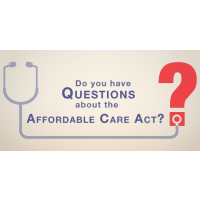Most Americans Don’t Understand Affordable Care Act
 (graphic: San Jose Public Library)
(graphic: San Jose Public Library)
Three years after Congress adopted President Barack Obama’s much debated healthcare reform law, a majority of Americans still don’t understand what it is or what it does, according to recent polling.
One survey, conducted by the Kaiser Family Foundation, found that 64% of respondents had no idea that the insurance exchanges allowing people to buy health coverage were already operating—even though the October 1 launch was repeatedly discussed in the news both before and after this date.
The Kaiser foundation poll also revealed the degree to which many Americans have been misinformed about the Affordable Care Act (ACA), which opponents have consistently labeled Obamacare. More than 40% said that the ACA provides subsidies to undocumented immigrants to buy health insurance, establishes something resembling a death panel, and reduces benefits for seniors currently enrolled in Medicare—none of which are true.
In addition, a Public Policy Polling survey showed that 27% of Americans—including 47% of African-Americans–didn’t know that Obamacare and ACA are the same thing.
Meanwhile, a recent Wall Street Journal/NBC News poll found that 76% of uninsured people “didn’t understand the law and how it would affect them.” It also revealed that only 51% of respondents knew that the insurance exchanges were in operation, and less than half (49%) were aware of the subsidies available for low-income people.
“The genuinely shocking degree of public ignorance regarding the ACA that has been revealed by this slew of recent polls, more than three years after the law was signed by President Obama, should not be something to which we respond by simply shaking our heads and lamenting that the American people are so ‘disengaged,’” Justin Doolittle wrote at Truthout.
“No, this ought to be viewed as a very serious political crisis and a grave threat to whatever semblance of health our badly disfigured democratic culture still maintains,” he added.
-Noel Brinkerhoff
To Learn More:
The American Public's Shocking Lack of Policy Knowledge is a Threat to Progress and Democracy (by Justin Doolittle, Truthout)
Approval of Obama Remains Consistent, Americans Blame Congress (Public Policy Polling)
Six of One - Obamacare vs. The Affordable Care Act (Jimmy Kimmel)
What is the Individual Mandate and when will it Take Effect? (by Noel Brinkerhoff, AllGov)
- Top Stories
- Unusual News
- Where is the Money Going?
- Controversies
- U.S. and the World
- Appointments and Resignations
- Latest News
- Trump to Stop Deportations If…
- Trump Denounces World Series
- What If China Invaded the United States?
- Donald Trump Has a Mental Health Problem and It Has a Name
- Trump Goes on Renaming Frenzy






Comments